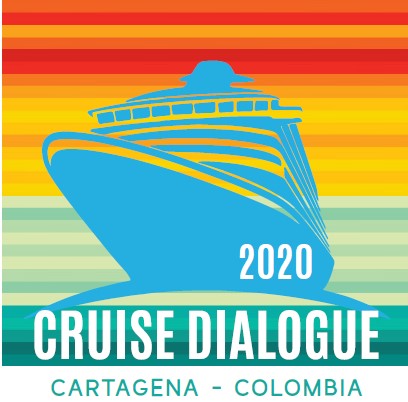- February 27, 2019
- Posted by: Damian Arango
- Categories: Calls, Conferences

The Cartagena dialogue: Preparing Ports, Cities & Destinations for the next day of cruising
An International academic-industry dialogue on how best to accommodate the seemingly unstoppable growth of cruise activities
Cartagena, Colombia, 19 -21 February 2020
First Call for papers
The Cartagena dialogue on Cruise, Ports and Cities 2020 is an international Conference, organized by the Universidad de los Andes, in collaboration with the University of the Aegean, Greece, and University of Genoa, Italy, to be held in Cartagena, Colombia, from 19th to 21st February 2020, under the theme “Preparing Ports, Cities and Destinations for the next day of cruising: An International academic-industry dialogue on how best to accommodate the seemingly unstoppable growth of cruise activities.
This international conference for cruise ports, stakeholders and decision-makers, and international scholars to discuss and interchange ideas on how best ports, cities, and destinations can prepare themselves in order to meet the challenges, achieve a sustainable accommodation and deliver a tourist experience in light of the consistently growing interest of cruise lines and citizens to cruise around the globe.
The event will also engage major cruise ports in the region, and associations representing ports and other stakeholders, in order to enhance the substance of discussions and develop concrete proposals for achieving the most desirable economic, environmental, and social sustainability of cruise activities development. The program is expected to include both academic and industry sessions.
Organisers
The conference is a Port Performance Research Network (PPRN) event; supported by PortEconomics.
Contributions
The organizers are looking for contributions and innovative approaches linking theory with practice.
We welcome contributions under the form of full papers and extended abstracts focusing – but not limited – on the following tentative topics.
- Cruise shipping and port economics
- Cruise port management and governance
- Cruise port development
- Port city relationships and integration
- Tourism in port cities
- The orange economy and cruise
- Flag and crew management in cruising
- Sustainability of cruise tourism
- Cruise service logistics
Contributions on research key topics of the cruise shipping and port industry related to the “local“ Caribbean context are welcome.
Special Sessions
Proposals for the organisation of special sessions are also welcomed.
Abstract format
Scholars interested in presenting their research and perspectives are invited to submit their proposal(s) (maximum 500 words) by 30 April 2019 to the Conference Coordinators via e-mail:
Gordon Wilmsmeier g.wilmsmeier@uniandes.edu.co; Thanos Pallis apallis@aegean.gr
Schedule for submitting contributions
- 1 April 2019: Launching of website and commencing of abstracts submission
- 30 April 2019: Deadline for abstracts & special session proposals
- 10 May 2019: Notification of acceptance of abstracts
- 30 September 2019: Deadline submission of full papers and extended abstracts
- 15 October 2019: Notification of acceptance of full papers extended abstracts
Publications
Papers submitted for the full review track of the Conference are eligible, if accepted, for publication in the conference associated journals and special issues. Please note that each journal has different requirements for publication, so in some cases further edits or a new (double-blind) review process will have to be completed before publication.
Scientific Coordinators
- Prof. Gordon Wilmsmeier, Universidad de los Andes, School of Management, Colombia
- Prof. Thanos Pallis, Department of Shipping, Trade & Transport, University of the Aegean, Greece; Visiting Professor (2019-20) Universidad de los Andes, Colombia
- Prof. Enrico Musso, Centro Italiano di Eccellenza sulla Logistica i Trasporti e le Infrastrutture, University of Genoa, Italy
- Prof. Geraldine Knatz, University of Southern California, USA
Scientific Committee
- Prof. Michele Acciaro, KLU Hamburg; Germany
- Prof. Emeritus Mary Brooks, Laureate, Onassis Prize in Shipping 2018, Canada
- Prof. Pierre Cariou, Kedge Business School, France
- Prof. Michael Dooms, University of Brussels, Belgium
- Prof. Peter Hall, Simon Frazer University, Canada
- Prof. Geraldine Knatz, University of Southern California, USA
- Prof. Joan Mileski, University of Texas A&M at Galveston, USA
- Prof. Jason Monios, Kedge Business School, France
- Prof. Enrico Musso, University of Genoa, Italy
- Prof. Adolf Ng, University of Manitoba, Canada
- Prof. Theo Notteboom, University of Shanghai. China; University of Antwerp, Belgium
- Prof. Thanos Pallis, University of the Aegean, Greece; Universidad de los Andes, Colombia
- Prof. Francesco Parola, University of Genoa, Italy
- Prof. Jean-Paul Rodrigue, Hofstra University, USA
- Dr. Ricardo. J. Sánchez, ECLAC, Santiago Chile.
- Prof. Giovanni Satta, University of Genoa, Italy
- Prof. Marcus Thiell, Universidad de los Andes, Colombia
- Dr. George Vaggelas, University of the Aegean, Greece
- Prof. Grace Wang, University of Texas A&M at Galveston, USA
- Prof. Gordon Wilmsmeier, Universidad de los Andes, Colombia
Practical information
Practical information will be soon available via the Conference website.
For any questions regarding the conference please contact:Â Eduardo Antonio Mc Ausland Bustillo, ea.mc10@uniandes.edu.co
About the Universidad de los Andes School of Management (UASM), Colombia
UASM was founded in 1972. Its undergraduate and master programs are accredited by the National Accreditation Council for the maximum period of10 years. UASM is accredited by the European Quality improvement System EQUIS since 2003; by the Association of MBAs for the MBA program since 2004; and by the Association to Advance Collegiate Schools of Business- AACSB – since 2010. These three accreditations, knows as the Triple Crown, are the most important and globally recognized, they place UASM among the 1% most prestigious Schools of Management in the world. UASM is the only School of Management in Colombia to hold this triple distinction and only nine Latin-American Schools hold this achievement.
About the Port Performance Research Network (PPRN)
The Port Performance Research Network (PPRN) is an informal network of maritime economists interested in issues of port policy. Main areas of discussion and knowledge exchange are efficiency, effectiveness, governance and sustainability of ports. Founded by Dr. Mary R. Brooks, it was established at the International Association of Maritime Economists 2001 meeting in Hong Kong to undertake empirical testing of antecedents for port performance and governance and to identify key successes and failures in port reform. Currently, the network has 60 members from 25 countries.
About PortEconomics
PortEconomics is a web-based initiative aiming to advance knowledge exchange on seaport studies. Established by maritime economists affiliated to academic institutions in Belgium, Greece and the Netherlands. It provides freely accessible research, education, information, and network-building material on critical issues of port economics, management and policies. Today, the PortEconomics team has 11 members and 20 associates from 15 countries.
Why this Conference?
An uninterrupted growth of cruise activities has been recorded for every single year, for more than three decades, and is in the course of continuation. This phenomenon has been supported by an unstoppable globalisation trend of both the supply (offer of cruises) and the demand (internationalisation of passenger source markets) sides of cruising, with the Caribbean and North America continuing to stand as the major cruise region of all.
Regional variants continue to exist, and the fundamentals of growth differ around the globe. These trends are revealed when comparing the details of the trends in the traditional American market, with the maturing European market(s), or the booming Asian one. Intra-regional dynamics go hand-in-hand with substantial intra-regional shifts of cruise activities.
While both the growing numbers of more than three decades and the detailed fundamentals of this growth would suggest that the globalisation is unstoppable, the effects of this trend have in recent times started to be questionable. Societal pressures have emerged in several locations that have experienced major cruise growth within a short period of time. In certain destinations, local communities have started questioning the unqualified growth of cruising, which had for long been taken as an a priori beneficial development. In a number of already developed cruise destinations, especially those which are also popular with other forms of tourism, the increase of cruise activity is not any more the main goal: emphasis has shifted towards the potential negative effects that existing and potential future growth of cruising might result in. Environmental impacts and other potential externalities pose pressures on destinations, thus affect social perceptions on cruise and concerns as regards further growth. Realising, increasing, and respecting the carrying capacity of ports and destinations and addressing the emerging social and environmental questions of today are the conditions of cruise growth continuation.
This acknowledgment fuels present and future business strategies as well as research streams: the ability of all stakeholders and the scholarly community to address the environmental and social questions of today is increasingly seen as the condition for securing the sustainable development of the globalised cruise industry.
The adjustment of cruise ports and cities to serve these trends, as well as the desires of port-cities and linked tourist destinations to enjoy the benefits produced, is important. As is the preparation of ports as well as of cities and destinations to accommodate cruise activities while securing the economic, environmental, social, and cultural sustainability of their growth. Once defined, specific business cruise strategies might work in support of making this growth sustainable.
The event will benefit by the intellectual debate that has been developed in the 2010s within the global Port Performance Research Network (PPRN), as well as by the professional experience of several members of the scientific committee, either via related scientific and contract research or related professional experience and institutional positions.
The intention is to engage in the event the major cruise ports in the region, as well as associations representing ports and other stakeholders, in order to enhance the substance of the discussions, and if possible develop concrete proposal (i.e. in the format of Cartagena declaration) for achieving the most desirable economic, environmental, and social sustainability of cruise activities growth.
The second part aims to stimulate intellectual discussion between scholars studying aspects related to ports policy, allowing interactions between theory and practice.
